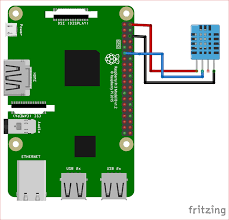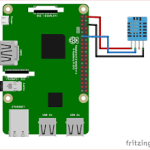
The Internet of Things (IoT) has revolutionized industries by enabling smart automation, real-time data tracking, and seamless device connectivity. At the heart of many IoT solutions lies Raspberry Pi, a powerful and cost-effective microcomputer that powers everything from home automation to industrial applications. If you’re planning an IoT project, you need to hire a Raspberry Pi developer with the right expertise to bring your vision to life.
In this guide, we’ll explore the essential steps to finding the best Raspberry Pi developer for your project, the skills they should possess, and where to look for top talent.
Why Hire a Raspberry Pi Developer for Your IoT Project?
A skilled Raspberry Pi developer can design, develop, and deploy IoT solutions tailored to your needs. Here’s why hiring a specialist is crucial:
- Expertise in IoT Solutions: A professional developer understands how to integrate sensors, actuators, and cloud services with Raspberry Pi for seamless automation.
- Efficient Coding & Optimization: They write optimized code in Python, C, C++, or Node.js to ensure smooth device performance.
- Hardware & Software Integration: They can work with GPIO pins, microcontrollers, and peripherals to build smart applications.
- Secure and Scalable Development: A developer ensures data security, encryption, and reliable network communication for IoT devices.
- Cost-Effective Solutions: Hiring an expert helps you avoid errors and ensures a faster time-to-market for your IoT solution.
Key Skills to Look for in a Raspberry Pi Developer
Before you hire a Raspberry Pi developer, ensure they possess the following technical and soft skills:
1. Proficiency in Programming Languages
A Raspberry Pi expert should be proficient in Python, as it is the most commonly used language for IoT development. Additional skills in C, C++, JavaScript (Node.js), or Shell scripting are a plus.
2. Experience with IoT Protocols
Knowledge of IoT communication protocols such as MQTT, HTTP, WebSockets, and CoAP is essential for seamless data transmission between devices.
3. Familiarity with Linux & Embedded Systems
Since Raspberry Pi runs on Linux-based OS (Raspberry Pi OS, Ubuntu, etc.), a developer should be comfortable working with command-line tools, shell scripting, and system configuration.
4. Hardware and Sensor Integration
The developer should be able to interface Raspberry Pi with sensors (temperature, motion, light), cameras, motors, relays, and other peripherals for automation projects.
5. Cloud and Database Integration
For cloud-based IoT applications, expertise in AWS IoT, Google Cloud IoT, Azure IoT, or Firebase is crucial. Additionally, they should be familiar with databases like MySQL, PostgreSQL, or NoSQL solutions.
6. Problem-Solving & Debugging Skills
IoT projects often face hardware-software integration challenges. A good Raspberry Pi developer should be skilled in troubleshooting errors, debugging circuits, and optimizing code.
7. Security Best Practices
Since IoT devices handle sensitive data, the developer should implement data encryption, secure boot mechanisms, and firewall protection to prevent cyber threats.
Where to Find and Hire a Raspberry Pi Developer
Once you know the skills to look for, the next step is finding the right candidate. Here are the best platforms to hire a Raspberry Pi developer:
1. Freelance Marketplaces
Websites like Upwork, Fiverr, and Freelancer allow you to find freelance Raspberry Pi developers based on their experience, reviews, and past projects.
2. Dedicated IoT Development Companies
Hiring from an IoT software development company ensures you get an expert developer with industry experience. Companies like Adequate Infosoft specialize in providing dedicated developers for IoT projects.
3. Tech Communities & Forums
Platforms like GitHub, Stack Overflow, and Raspberry Pi Forums are great places to find developers who are actively working on IoT projects.
4. LinkedIn & Job Portals
Use LinkedIn, Indeed, or Glassdoor to find professionals with Raspberry Pi development experience. You can post job openings or reach out to candidates directly.
5. University Research Groups
Many university students and researchers work on Raspberry Pi-based IoT projects. Collaborating with universities can help you find skilled talent at competitive rates.
Steps to Hire the Right Raspberry Pi Developer
Step 1: Define Your Project Requirements
Clearly outline your IoT project’s goals, required hardware components, software stack, budget, and timeline.
Step 2: Review Portfolios & Past Projects
Check a candidate’s previous projects on GitHub, personal websites, or freelance profiles to evaluate their expertise.
Step 3: Conduct a Technical Interview
Ask technical questions about GPIO pin configurations, Python scripts, Linux commands, IoT protocols, and debugging methods to assess their skills.
Step 4: Give a Small Test Project
Assign a small coding task or circuit integration project to test their ability to develop and troubleshoot Raspberry Pi applications.
Step 5: Discuss Budget & Hiring Model
Decide whether you want a freelancer, in-house developer, or outsourced development company based on your project complexity and budget.
Step 6: Finalize Contract & Begin Development
Once satisfied, sign an NDA or service agreement and start working with the developer on your IoT project.
Conclusion
Hiring a skilled Raspberry Pi developer is essential for building a successful IoT solution. By focusing on the right technical skills, industry experience, and hiring platforms, you can find a developer who aligns with your project’s needs. Whether you need a smart home automation system, industrial IoT solution, or AI-powered edge device, an expert Raspberry Pi developer can bring your vision to reality.
🚀 Need a reliable Raspberry Pi developer for your next IoT project? Adequate Infosoft provides experienced developers for custom IoT solutions.
📞 Contact us today at +91-120-4198878 to get started!






Leave a Reply